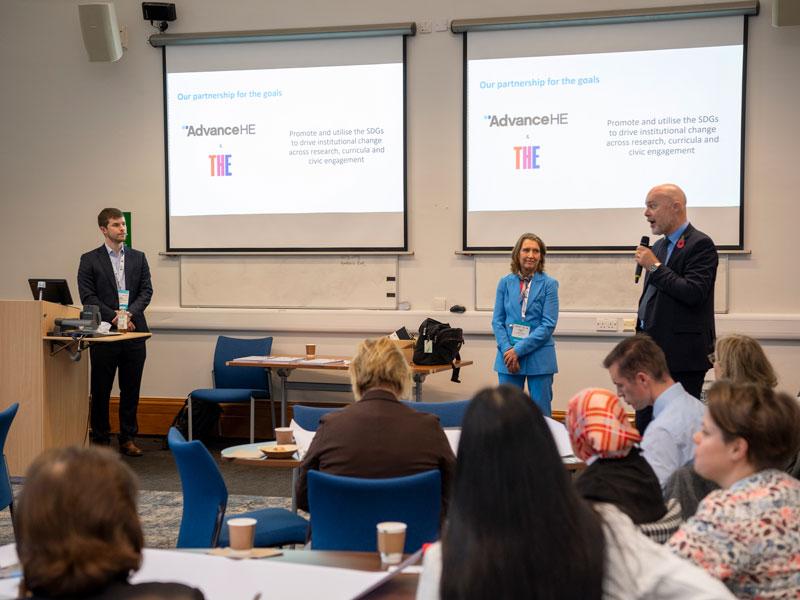Let’s start with the uncomfortable truth: If your goal is simply to get a four-star impact case study, you’re missing the point – and probably the goal. If institutions are telling you to “do some impact that’s four-star”, they’re missing the point too, and probably having a negative impact on research culture in their setting.
The obsession with scoring well in research assessment exercises like the Research Excellence Framework has created an environment where impact is treated as a means to an end. But excellence in impact doesn’t come from trying to reverse-engineer a case study to fit research assessment criteria. It comes from a deep, intrinsic understanding of your work’s relevance to the world outside academia, and long-term, authentic engagement with the stakeholders it affects. The quality of your research and its value to society can be developed and demonstrated.
So how do you actually get a four-star impact case study? By forgetting about the four-star and starting with the impact.
The metrics myth
After a decade in UK higher education, what we’ve seen, time and again, is that institutions approach research impact as a compliance exercise. Or worse, they see it as a means to instruct academics how to conduct their research. Academics are asked: “Do you have a case study?” or even: “You should have a case study”, rather than “What difference is your research making in the world?”
- How to demonstrate the worth of arts and humanities-based research
- How to communicate your research to anyone
- Demystifying impact: a glossary of key terms
The result? Case studies that are pulled together at the eleventh hour, sometimes with little support, and often without meaningful stakeholder involvement. Metrics are prioritised over meaning. As we explore in our book, Exploring Research Impact in Academia and Why It Matters, this leads to impact being misunderstood, undervalued and, worst of all, detached from academic identity.
Impact doesn’t happen because someone wrote a good story. It happens because someone did good, engaged, useful, valuable research over time.
Real impact is a practice, not a product
Researchers who consistently achieve excellent impact outcomes don’t start with the REF in mind. They start with curiosity and care: who is affected by my work? What problems can it help solve? Who do I need to talk to, listen to and learn from?
These are the questions that build the foundation of impactful research. They also shape what we describe in our book as Homo Academicus Impactus – a nod to sociologist Pierre Bourdieu and a recognition of an identity where an academic sees impact not as an institutionally imposed add-on, but as central to what it means to be a researcher.
This doesn’t happen overnight. It evolves through experience, reflection and, most importantly, relationships with your stakeholder space. The best impact is grounded in mutual trust and co-creation, not dissemination at the end of a project. It’s about working with communities, policymakers, industry or practitioners – not just producing outputs for them.
Case studies should be snapshots, not strategies
A REF case study should be a lens, not a goal. It’s a way of telling the story of change that has already occurred, not a recipe for how to make it happen.
In our book, we explore a real-life example of how long-term engagement with policy and education stakeholders led to meaningful change in online safety practices in schools. This was not a process driven by REF deadlines or compliance checklists – it was the natural outcome of more than a decade of consistent, collaborative work. The case study simply made visible what was already there and, in the case of this research, routine.
Contrast this with institutions that treat impact as a bolt-on. Impact managers are hired just before submission deadlines. Academics are told to “find” evidence. Consultants are brought in to polish up stories and tell institutions who to submit. This might get you over the line – but it won’t build a culture of excellence, nor will it help you do it again next time.
From metrics to meaning
If we want to foster genuine impact, we need to shift from performance metrics to purpose. That means creating environments where impact is encouraged as part of academic identity, not imposed as an external requirement.
Here are five practical steps for researchers who want to build excellence in impact:
1. Start with the “why”
Don’t wait until a funding application or REF cycle to think about impact. Ask yourself why your research matters – to whom, and how?
2. Know your stakeholder space
Understand who your research could influence, benefit or challenge. Build relationships early and often and maintain those relationships for mutual benefit. Impact is relational, not transactional.
3. Co-create, don’t just disseminate
Share ownership of the research process. Engage stakeholders as collaborators, not just recipients. See the value from both sides.
4. Document continuously
Capture feedback, changes, collaborations and testimonies as you go. Good impact stories aren’t written from memory – they’re built over time. Leaving everything until the last minute might leave you discovering that contacts have moved on.
5. Value impact as scholarship
Challenge the narrative that “real” research is only what’s published in journals. Impactful research is good research – it’s research that matters.
What excellence really looks like
A four-star impact case study is not a tick-box exercise – it’s the visible outcome of excellent, embedded, values-driven research practice. It reflects trust, credibility and long-term commitment to societal relevance.
If institutions really want to increase their impact scores, they must stop focusing only on scores. They must support researchers in understanding their stakeholder landscapes, give them time and resources to build meaningful relationships, and acknowledge that the best impact doesn’t follow a script. It grows from purpose.
So, how do you get a four-star case study? You stop aiming for one, and you start doing work that deserves one.
Andy Phippen is professor of IT ethics and digital rights at Bournemouth University. Louise Rutt is senior research environment, culture and impact manager at the University of Plymouth.
If you would like advice and insight from academics and university staff delivered direct to your inbox each week, sign up for the Campus newsletter.




comment1
(No subject)